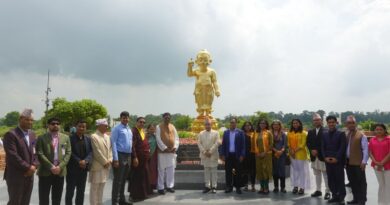Supreme Court to Examine Advocate’s Dual Role as Freelance Journalist Amid Professional Misconduct Allegations
(Judicial Quest News Network)
New Delhi 29, July 2024
On Monday, July 29th, the Supreme Court issued a directive for the Bar Council of India and the Bar Council of Uttar Pradesh to investigate the conduct of advocate Muhammad Kamran. This follows a defamation case filed by Muhammad Kamran against BJP MP Brij Bhushan Sharan Singh. The court found the Advocate working as a freelance journalist while practising as a lawyer this has brought Kamran’s dual role as both a practicing lawyer and a freelance journalist under scrutiny.
Case Background and Court Directive
The Supreme Court’s intervention came in response to a complaint alleging that Kamran’s simultaneous practice as a lawyer and his accreditation as a freelance journalist constitute professional misconduct. The complaint, pursued by the petitioner, argues that Kamran’s activities as a journalist may violate the Bar Council of India (BCI) rules which prohibit advocates from engaging in other professions.
The Court has instructed the Bar Councils to take appropriate action regarding Kamran’s conduct, emphasizing that such dual roles are prohibited under the BCI’s professional conduct rules. Specifically, Sections 47 and 49 of Chapter 2 of the BCI rules prohibit an advocate from engaging in personal business or holding salaried positions, while Section 51 outlines restrictions on broadcasting, journalism, lecturing, and teaching in relation to advertising and full-time employment.
Allegations and Legal Proceedings
Kamran’s defamation complaint alleges that Singh sent defamatory letters to Uttar Pradesh Chief Minister Yogi Adityanath, falsely accusing Kamran of having serious criminal cases against him while being recognized as an independent journalist by the Uttar Pradesh government. Singh’s letters, according to Kamran, contained allegations about his criminal background and his dual role as a journalist, which he claims were defamatory and damaging.
During the proceedings, Justice Abhay Oka raised concerns about Kamran’s dual roles, highlighting a potential conflict with the BCI rules that mandate full-time commitment to legal practice and prohibit simultaneous engagement in other professions. Justice Oka pointedly questioned Kamran about his adherence to these rules and suggested that his actions might constitute professional misconduct.
The High Court previously dismissed Kamran’s defamation complaint, arguing that the letters were confidential communications between constitutional authorities and did not constitute defamation as they were not publicly disseminated. The High Court also noted that the trial court had not followed proper procedures under the amended Section 202 of the CrPC, which requires an investigation or inquiry before summoning an accused from another district. Consequently, the High Court found that continuing criminal proceedings against Singh would be an abuse of the legal process.
Supreme Court’s Next Steps
The Supreme Court has now issued a notice to Kamran regarding his challenge to the High Court’s dismissal of his defamation complaint. The Court has directed the two Bar Councils to review the complaint and take necessary action, including forwarding copies of the complaint and the Court’s order to the relevant authorities for further examination.
The outcome of this investigation could have significant implications for the standards of professional conduct for advocates who engage in multiple roles. The Supreme Court’s intervention underscores the importance of maintaining adherence to legal and ethical standards within the profession.
The matter is scheduled for further proceedings, with the Court expected to address these complex issues of professional ethics and dual-role engagement in the near future.



